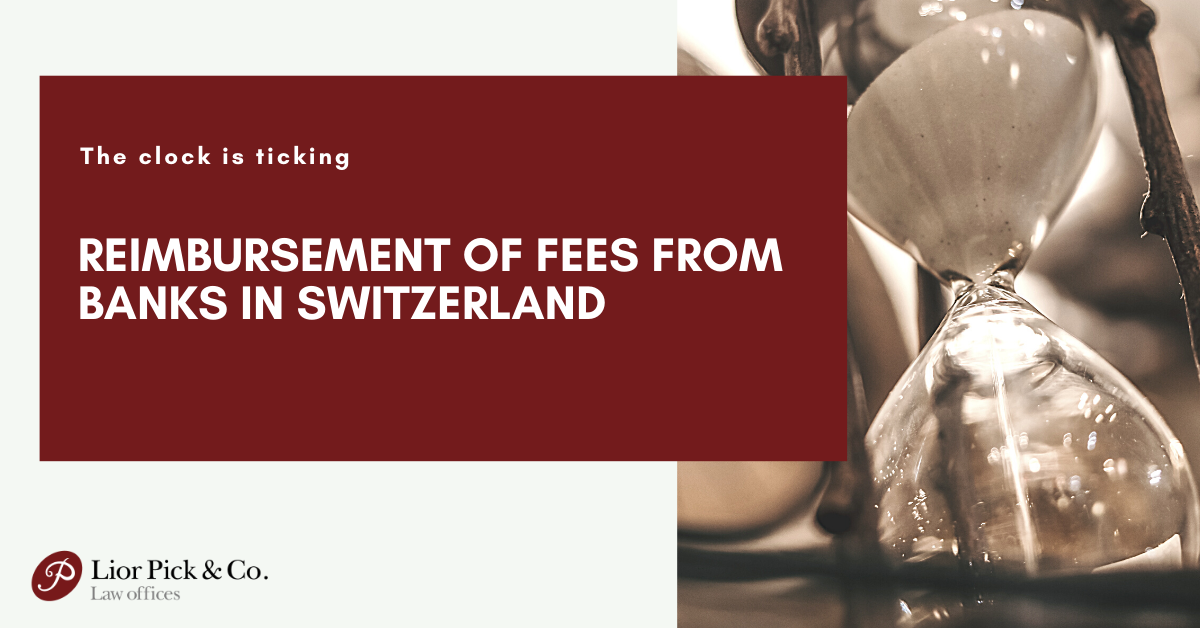Lior Pick, Advocate (CPA (Isr.)) TEP
When a French resident intends to transfer his residence from France to Israel or to any other country, there are some tax aspects that have to be analyzed. The Exit Tax is one of the major tax issues, and it is important to check with a professional how to avoid it.
Indeed, the new Exit Tax regime was reintroduced in France in the First Amendment Finance Act for 2011 (hereinafter: “The Finance Act 2011”) on the 29th of July 2011 and applies to French taxpayers who transfer their tax residence out of France to any country.
According to the Finance Act 2011, taxpayers who have been French tax residents at least 6 out of the 10 years previous to the tax residency transfer are taxed on the unrealized capital gains if the transfer of the tax residence is after the 3.3.2011.
The taxation of unrealized capital gains upon the transfer
This Exit Tax is an immediate Income Tax and Social Taxes on the latent Capital Gain on:
– Any direct or indirect participation that is at least 1% of the company profits.
– Any participation in several companies that have a value superior to1.3 million Euro.
– Any debt of price rest
– Some Capital Gains that are reported from tax
There are some exceptions for PEA shares, Sicav and Sppicav shares, FCP shares, Sicomi shares, FCC shares for more than 5 years, carried interest shares, employees’ shares, BSPCE profit, stock-options profit, capital gain from free shares attribution, real estate company shares.
The Unrealized Gain (valued on the day of departure) will be taxed at the usual Capital Gains Tax rate (19%) plus social taxes (15.5%), at the day of the redaction of this article.
The Exit Tax would be due at the time of leaving France – unless a delay of tax payment applies.
Unfortunately, in many cases, the tax payer shall sell part of its assets in order to pay the Exit Tax.
Another issue is to assess the value of the assets, especially when the value of the shares at the day of the transfer of tax residence is higher than the value of the shares at the day of the sale Tax payment delay.
An automatic tax delay is granted as a right and without any request of guarantees if the tax residence is relocating to a European Union Country or to a country member of the European Economic Espace that has signed with France a treaty of assistance to avoid tax evasion or a treaty of assistance for debt collector.
A tax delay without guarantees is also granted if the taxpayer transfers his residence out of France for work reasons.
If the taxpayer transfers his residence into another country than a UE or a EEE country (included Israel), he has to pay Exit Tax at the day of his residence transfer out of France. A delay can be granted only with a request and under some conditions: declaration on the Capital gain, tax representative and guarantees to the French tax authorities.
If a delay is granted, the Exit Tax will be due at the time of the disposal of the shares.
Reductions and exemptions are taken into account and foreign taxes paid are deductible from the Exit Tax due.
The delay of tax payment ends if one of those tax events occurs in the 8 years after the transfer of tax residence: sale, donation or cancellation of the shares.
If the taxpayer sells his shares, the Exit Tax will be calculated according to the market value of the shares:
– If the value of the shares at the day of the sale is lower than the value at the day of the transfer of the tax residence (depreciation), the Exit Tax will apply according to the realized Capital Gain. No tax will be paid in case of losses.
– If the value of the shares at the day of the sale is higher than the value at the day of the transfer of the tax residence (increase), the tax will apply according to the value of the shares at the day of the transfer of the tax residence.
Exemption on capital gain tax
The taxpayer can be exempted on Exit Tax in 3 situations:
– If the taxpayer keeps his shares for at least 8 years after the tax residence transfer.
– If the taxpayer transfers back his tax residence into France before the end of the period of 8 years.
– If the taxpayer deceases and the shares are transferred by donation or inheritance. In some cases there will be tax exemption of Capital Gain if there is a donation (the taxpayer needs to prove that it is not an abuse)
It has to be noted that in those situations the taxpayer benefits from an exemption of Capital Gain tax but he will still have to pay the social taxes when he will sell his shares (15.5% at the day of this article).
Formalities
The Decree of April 2012 provides a list of formalities that have to be done at the time of the transfer of residence. Indeed, a form must be fulfilled with details: the date of the transfer, the new address, the amount of the unrealized capital gain, etc
This form has to be attached to the annual Income Tax declaration, each year during the period of delay.
The aforementioned contains nothing to serve as an opinion and/or an alternative to individual legal taxation advice. We will be happy to be at your disposal for any queries and or explanations regarding this or any general matter. Our office specializes in taxation advice (income tax, betterment tax, VAT) and also accompanies real estate, company and international transactions.
Yours sincerely,
Lior Pick & Co. Law offices

In 2012, the Federal Supreme Court of Switzerland ruled that banks must reimburse their clients – among them many Israelis – who were billed […]


Force Majeure is a common clause in a contract. Many agreements include a Force Majeure clause which can, in some specific cases, cancel or […]

Virtual Currency Exchanges allows the trading and exchange of cryptocurrency (virtual currencies or utility tokens) for other cryptocurrencies or for fiat currency. Nevertheless, this […]

It is common knowledge that, as a part of the division of land estates, there are opportunities to plan taxation correctly. This is sometimes […]

“Even clients of the Swiss bank Credit Suisse received a preferred list of lawyers and accountants to perform ” voluntary disclosure ” procedures – […]

Facebook Twitter

On September the 7th, 2014, the Israeli Tax Authorities published a new Temporary Order for Voluntary Disclosure Requests authorized by the new Voluntary Disclosure […]

A. GENERAL The Tax Authorities are interested in encouraging tax-payers, dealers, individuals and functionaries in enterprises of whom violated the tax laws, to correct […]

As you know, after introducing of amendment #168 of 01.01.2007 into Israeli law on income taxation, the new immigrants and citizens who have returned […]